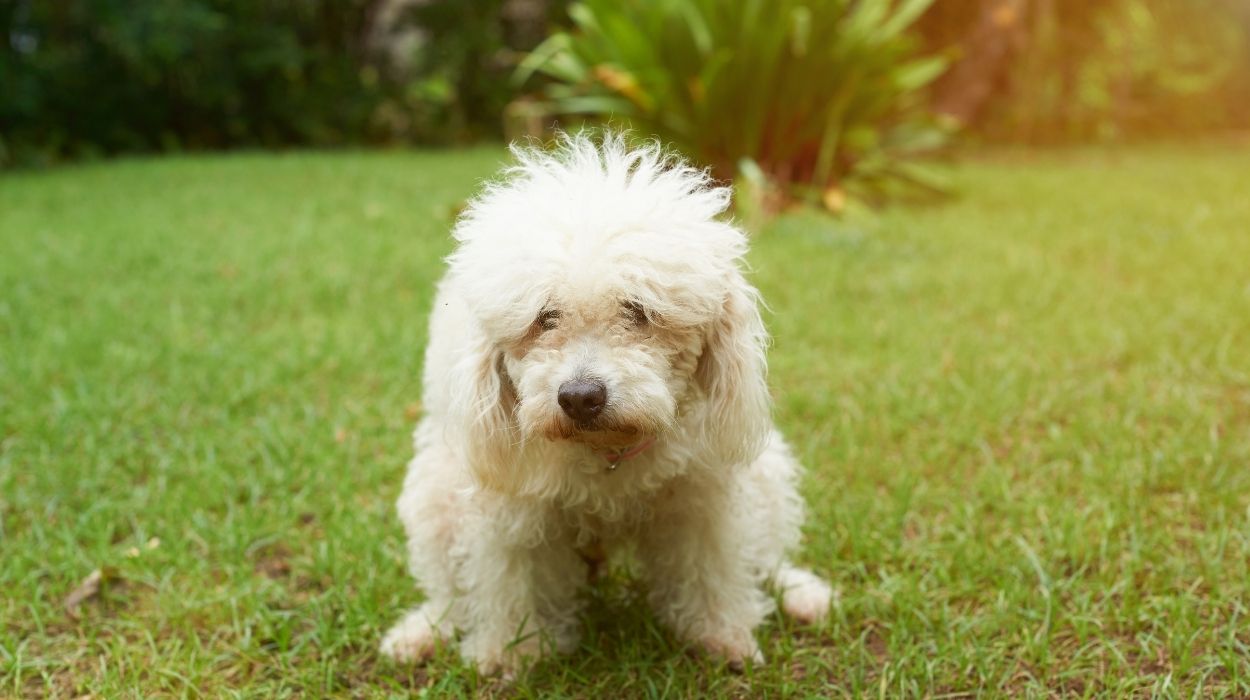When it comes to puppies and their poop, the main thing you need to observe is consistency.
This may disgust you but it is essential for you to understand at what stage they stop pooping soft stools. If your puppy poops soft stools, it might be completely normal or might be a health problem.
You only need to worry about soft stools when it persists for a long time and accompanies symptoms like panting, avoiding walks, and constant denial to eat their food.
Therefore, you have to know the reasons behind it and when to take action to prevent it.
When does it become firm?
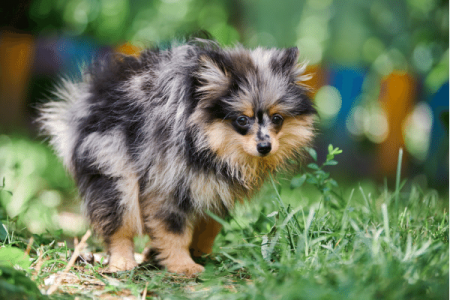
Puppy poop will stay soft until they are weaned. The stool will become firmer as you make changes to their diet. As their digestive system adapts to the new food, you might even see your puppy experiencing diarrhea for some time.
After they become used to the food, their stool will become firmer and their poop will look a healthy brown color with no rancid smell. But if they go back to being soft from firm, then your puppy might be facing an issue. Observe the softness to see if it proceeds to be the same for more than 24 hours, then take them to the vet.
Why is your puppy’s stool soft?
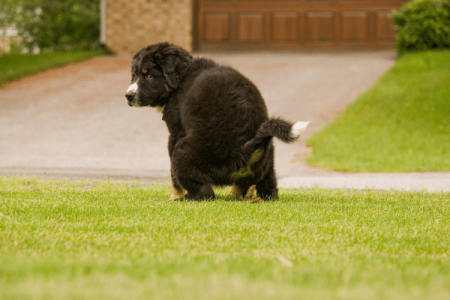
There are a few reasons why their stool is soft, ranging from changes in diet to parasites. Soft or loose stools can also be caused when the colon is not working as it should.
You might see that their poop at the end of the day might be softer than the one from the morning.
Sometimes soft stool might mean your puppy has Giardia so it is better to get their health checked by a vet.
There are several more reasons why your puppy’s stool may be soft. We explain all of them in detail below. So, keep reading to find out more.
1. Diet
At one point you will start changing their food from puppy food to normal dog food. But, when you make the change suddenly, it might make their stool soft.
Therefore, you need to take it slow with your puppy and introduce the new food gradually. Your puppy’s gastrointestinal tract needs time to adapt to the new changes in the food.
There are some things that might not be normal in your puppy’s diet and those are the obscure items they choose to eat like poop, small objects, food from the garbage, spoiled food, and dead animals. This can make their stool soft.
When they eat too much, there is bound to be some undigested food. Since it did not get broken down and absorbed, poop will become soft.
Apart from this, a lot of dogs cannot have dairy products because they might be lactose intolerant. So, they can get diarrhea.
2. Excitement
When you take your dog to the dog park to make them interact with other dogs, or when you play with them or they are being playful with others, the excitement of that can also make their stools soft or give them diarrhea.
This is common in both dogs and puppies and automatically goes back to normal within a day.
3. Stress
Any event like going to the vet, getting a vaccine can make your dog stressed or uncomfortable. Vets also tend to inspect their rectum. All these scenarios can make your dog anxious and they produce soft poop.
Any type of emotional upheaval will affect them and thereby the consistency of their stool.
If the dog is more restless or nervous due to a change in diet or any environmental factors, they can poop soft stools.
4. Parasites
Parasites are nasty organisms that can cause diarrhea to your puppy. What they do is latch on to the dog’s intestines and try to absorb all the nutrients. It’s why sometimes you might see blood in their poop. This can lead to soft stools, vomiting, and diarrhea.
If your pup is not vaccinated they are more likely to catch parvovirus. This dangerous virus can cause bloody diarrhea, starvation and vomiting. Therefore, whenever you suspect this, take your dog straight to the vet.
There are several worms that can affect your dog. Roundworms, Hookworms, Whipworms, Coccidia, and Giardia can lead your dog to have a fragile immune system.
How to tell if it’s soft stool or diarrhea?
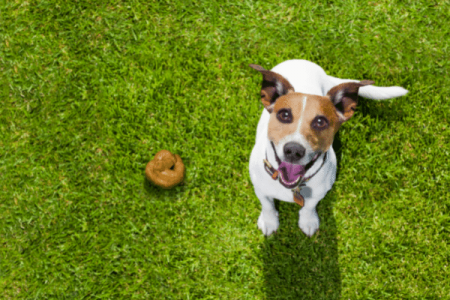
Whether your puppy has soft stools or diarrhea both can cause dehydration. However, it is still easy to tell the difference between them.
A soft stool is just what is says-soft. Therefore, it has some shape which usually comes in small balls. This shape will remain. Along with this, when you pick it up, it will leave some remnants on the ground. That means some of it can still be picked up.
That is not the case with diarrhea. Since it’s very watery, there will be no shape to it and you won’t be able to pick it up at all because it is too liquid.
Diarrhea can also indicate that your dog might be ill or they are trying to expel something toxic out of their system.
Soft stools are not caused due to disease but due by changes in diet, lack of fibre and the quality of food.
Things you can do to make puppy poop firm
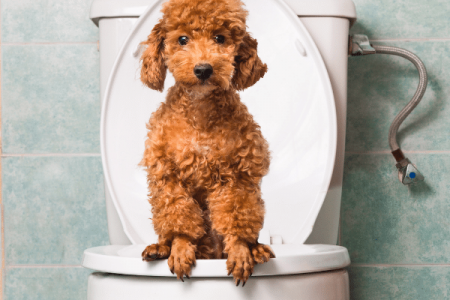
There are a few things you can do to make their stool firmer. After you find out what is causing the softness, you have to act accordingly.
If you are trying to introduce new food slowly, the best way to do that is to increase the amount of new food by 10 per cent every once in two days. Simultaneously, use the same percentage and timeframe to decrease the old food. Give them time to adjust and be patient.
Give them a bland diet with just steamed chicken and rice. It can bring back the firmness in their stools as it is easily digestible. Also, make sure they are eating food that is high in quality. Look at the ingredients and see if your dog food has a lot of starch, corn and grains.
Add fiber treats because it helps in absorbing all the moisture and help in firming up the stool. Food that is high in fiber is raw vegetables.
Meat should be the main ingredient in your dog’s food. White meat like chicken or turkey and food that has fewer preservatives and is not fully processed will help with the firmness. Reduce the amount of kibble and avoid high protein food or wheat-based food.
Another thing you can give is raw bone to firm up your dog’s stool but make sure you don’t give the morrow. Do not give them fast foods since most of them are fried and can become foul very fast.
Yoghurt, boiled potatoes (remove the skin), and cottage cheese are known to help regain equilibrium. However, try to give them a lactose-free diet as much as possible because some dogs might be lactose intolerant.
Wet foods have more water content while dry foods will have less water content so change their diet from wet to dry since more water means wetter and softer stools.
For parasites, you need to visit the vet to solve this problem and deworm them regularly. You can also give them probiotics because the infection from parasites can still remain long after they are dead. Probiotics can act as a good replacement. Use them to bring balance between digestion and proper stool consistency. Also, deworming them every month is crucial.
Get your dog checked for any offending food items that may cause food intolerance.
You should always avoid overfeeding your dog because it helps prevent less digestion and absorption of food.
One of the main things you need to know is the difference between diarrhea and soft stools so you can provide them with the proper care.
Water is everyone’s saving grace. Keep them hydrated with fresh water because even if the poop comes out soft, they will lose a lot of water in the process. This will make them dehydrated and weak.
Lastly, always provide your dog with regular exercise and mental stimulation. If your puppy is pooping softly due to stress, then this is the way to prevent that.
Conclusion
Your dog’s poop can help the owner know a lot about their digestive system and their overall health. You need to observe the poop every day to find out whether your dog is suffering from diarrhea or it’s just a temporary case of soft stools.
Moreover, you need to give puppies time because it will take some time to adjust to being weaned.
Now, if you try to prevent the behaviour by punishing them or yelling at them, it will be the most unhelpful thing you will do. What you can do is respond to every situation without freaking out and always use positive reinforcement.
If you can relate to any of the situations we mentioned above, let us know by commenting below.

Dr. Aram Baker has been with Santa Clarita Animal Hospital since 1995 and his special interests include behaviour medicine and dermatology. He graduated from the Cleveland Humanities Magnet Program in Reseda, CA and attended California State University at Northridge where he received a Bachelor’s degree in biology. He went on to pursue his Doctorate in Veterinary Medicine at the University of California at Davis. He also spent time in the zoological medicine department at U.C. Davis during his Junior and Senior years. He is dedicated to caring for all pets big or small, young or old with compassion, patience, kindness, and love.
